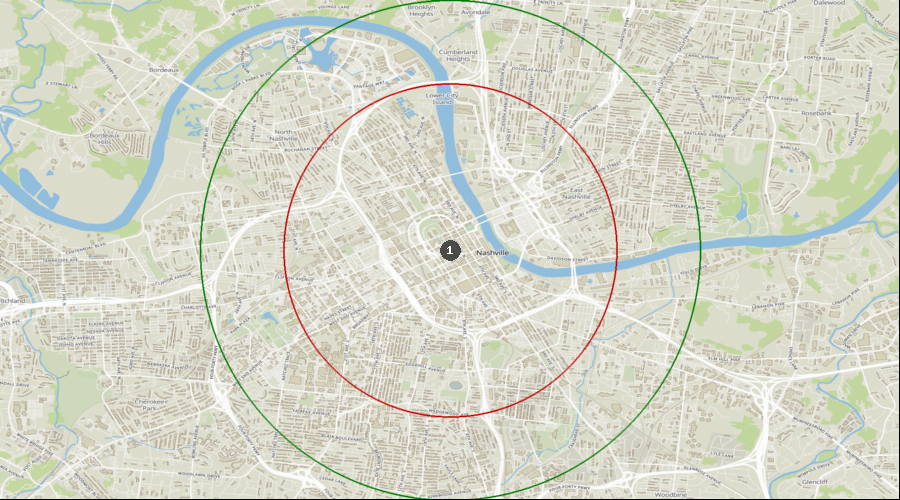![]() | Population |
Nashville's current population is 21,191 people with 12,944 households within this smaller 1 mile radius. This area experienced positive population growth of 107.7% from 2010-2020. This area is projected to grow another 49.0% over the next five years. This is higher than the national average.
The median age of the population in this area is 32.4 which is below the state average of 39.6 years old. This area has an average household size of 1.52 persons. This area is not very family centric with 20.4% of the households being family households and with 7.7% having children in the home and 4.4% of the population being under 15 and an additional 13.3% being under 24. Another 57.3% of this area’s population is between 25 and 44 years of age and 18.6% between 45-64 years old leaving 6.5% of the population over 65 years old. These last two age groups are target age groups for dentures, partials, crowns, and other restorative work.
Nashville has a daytime employee population of 64,083 versus a permanent population of 21,191 meaning the daytime employee population is 302.4% of the permanent population living in the area and 91.0% of the total daytime population. Nashville has a significant employee population that strongly influences the area. This could allow a practice to keep more daytime weekday hours as opposed to early morning hours, evening hours, or Saturday hours.
| |
In this area, 76.1% of the population either holds a bachelor's degree or higher educational degree. Nashville is higher than the state and US average.
The dominant racial and ethnic groups of the population in the Nashville area are White 72.0%, Black 15.6%, Asian 4.4%, 1.6% other races and 5.1% Hispanic or Latino of any race.
Overall these population demographics are favorable indicators for an adult general practice dental office.
|  | Table #2 Significant Demographic Characteristics |
| |
Demographic Analysis for Nashville, Tennessee
|
|
|
|
|
| POPULATION | | | |
| Population 2025 | | 21,191 | 7,204,409 | 338,440,954 |
| 2010 Total Population | | 7,501 | 6,356,717 | 309,121,785 |
| 2020 Total Population | | 15,579 | 6,924,826 | 331,839,624 |
| Projected Total Population 2030 | 31,575 | 7,465,737 | 344,873,411 |
| Population Change, 2010 - 2020 | 107.7% | 8.9% | 7.3% |
| Annual Population Change Rate, 2025 - 2030 | 8.3% | 0.7% | 0.4% |
| POPULATION AGE BREAKDOWN | | | |
| Median Age | 32.4 | 39.6 | 39.3 |
| Under 4 years old | 1.7% | 5.6% | 5.5% |
| 5 - 9 years old | 1.5% | 6.0% | 5.8% |
| 10 - 14 years old | 1.2% | 6.1% | 6.0% |
| 15 - 24 years old | 13.3% | 12.9% | 13.2% |
| 25 - 44 years old | 57.3% | 26.4% | 26.9% |
| Number of Adults 25-44 | 12,133 | 1,901,549 | 90,938,228 |
| 45 - 64 years old | 18.6% | 24.7% | 24.4% |
| Number of Adults 45-64 | 3,936 | 1,781,938 | 82,485,679 |
| 65 years and over | 6.5% | 18.3% | 18.1% |
| Number of Adults 65 years and older | 1,377 | 1,317,353 | 61,399,291 |
| 0 - 14 years old | 4.4% | 17.7% | 17.4% |
| Number of Children 0-14 years old | 928 | 1,274,138 | 58,800,947 |
NOTE: All percentages are rounded. ESRI data pulled as of August 27, 2025. Data showing future dates are projections.
| | Highlighted fields signify favorable characteristics on a comparison basis with the other locations listed and/or national averages |


